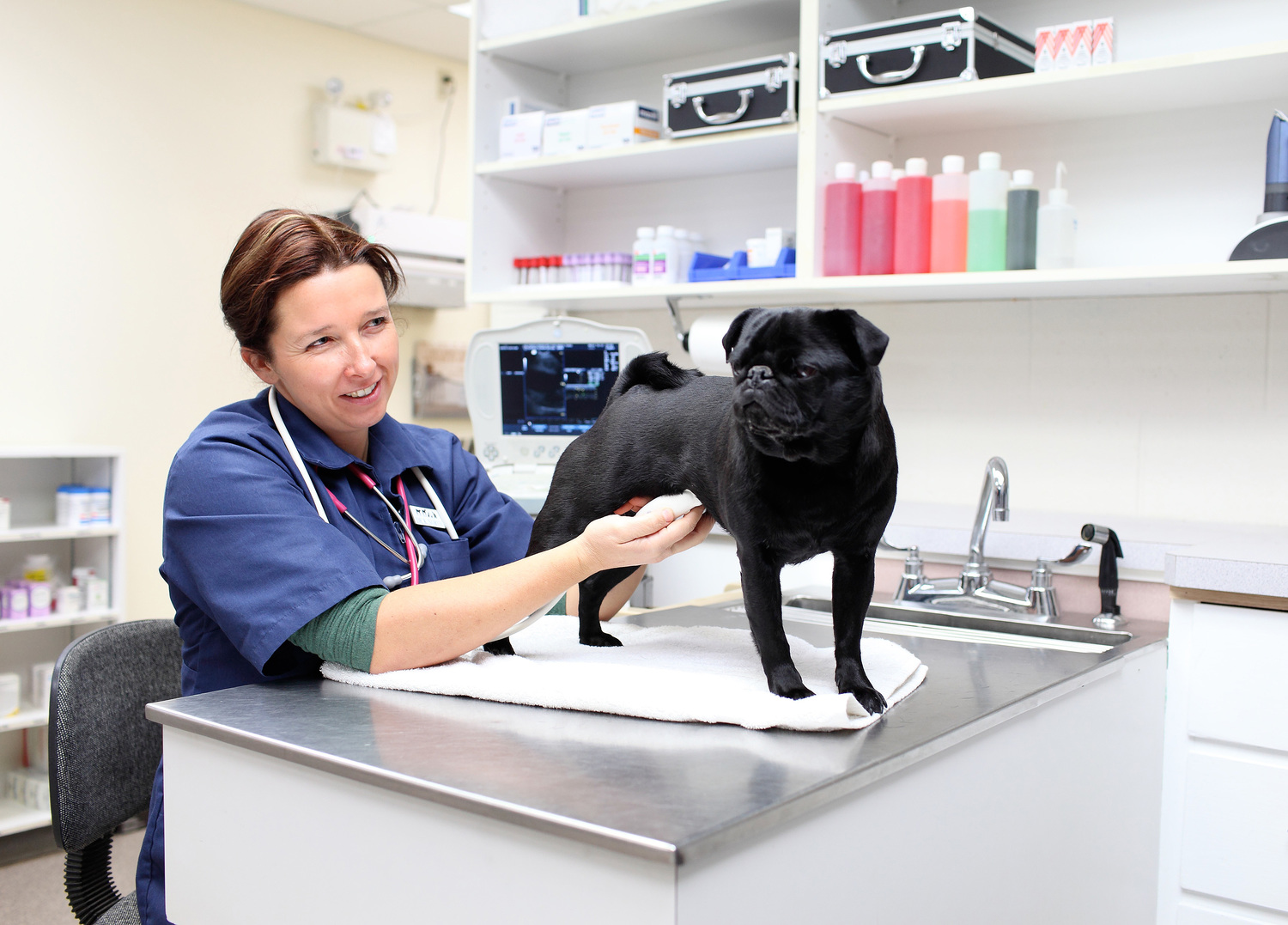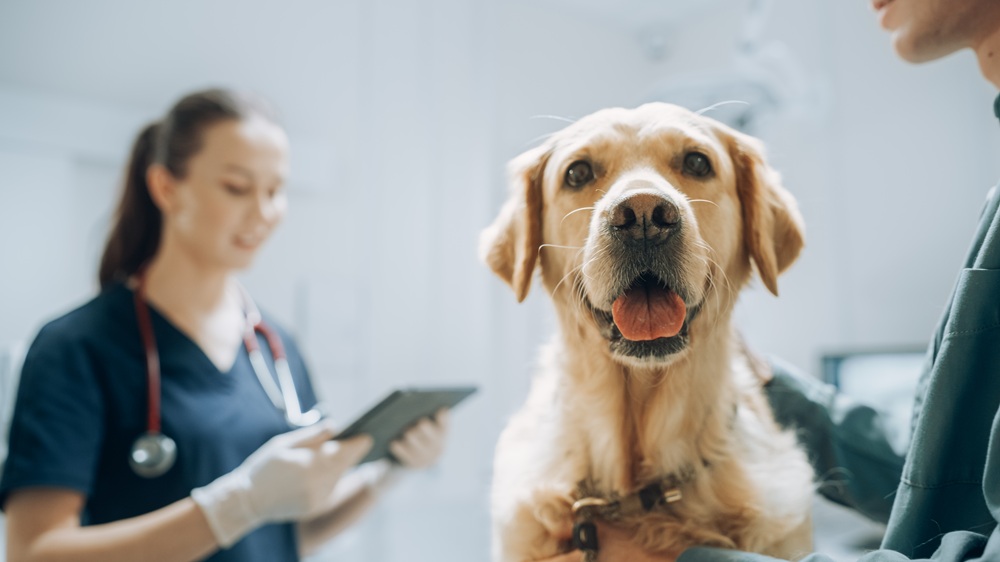Five reasons to visit a specialized Veterinary hospital
Wiki Article
How a Veterinary Specialty Hospital Can Cure Your Pet's Ailments With Advanced Techniques
Veterinary specialty hospitals play a crucial duty in addressing intricate wellness issues in animals. They use sophisticated strategies and innovations that boost medical diagnosis and treatment. With access to specialized services, pet proprietors can discover tailored options for their pets' conditions. This elevates important questions concerning the details approaches used and the advantages they supply. Comprehending these aspects can significantly affect a pet's recovery trip.Comprehending the Function of Veterinary Specialty Hospitals
Although health care vets offer necessary solutions for pet health and wellness, vet specialty hospitals play an essential role in attending to intricate medical problems that need advanced diagnostics and therapy. These centers are geared up with specialized technology and seasoned professionals who concentrate on particular areas of veterinary medicine, such as oncology, cardiology, and neurology.Veterinary specialty hospitals promote a collective strategy, frequently functioning in combination with a pet's primary vet to develop complete care plans. They give accessibility to sophisticated imaging methods, such as MRI and CT scans, which are not usually available in standard centers. On top of that, these hospitals supply extensive care systems for critically unwell pets, making sure round-the-clock tracking and support.
Specialized Solutions Supplied by Veterinary Professionals
Veterinary specialists supply necessary solutions that boost pet dog medical care, specifically through sophisticated analysis imaging methods. These devices allow precise analyses of complicated clinical problems, causing a lot more reliable targeted therapy plans. By integrating these specialized services, vet hospitals can significantly enhance person end results and overall health.Advanced Diagnostic Imaging
Advanced analysis imaging plays an important role in modern veterinary medication, allowing specialists to acquire detailed understandings into an animal's health and wellness. Strategies such as X-rays, ultrasound, computed tomography (CT), and magnetic resonance imaging (MRI) enable vets to visualize internal structures without invasive procedures - Learn More. These innovative imaging modalities help in identifying a range of problems, from tumors and cracks to organ abnormalities. By offering clear images, they improve the precision of analyses, which is essential for efficient therapy planning. Furthermore, specialized vet radiologists interpret these photos, making certain that subtle concerns are not forgotten. Ultimately, progressed diagnostic imaging contributes in delivering extensive care, as it permits early discovery and intervention in a family pet's medical problems
Targeted Therapy Strategies
Targeted therapy strategies are important for attending to the particular health needs of family pets, ensuring that each pet receives individualized treatment customized to its distinct problem. Veterinary specialists develop these plans based upon comprehensive evaluations, including innovative diagnostic imaging and lab tests. By focusing on the individual pet dog's diagnosis, way of life, type, and age, specialists can prescribe effective treatments, ranging from medication changes to surgical treatments. These strategies additionally include follow-up care and keeping an eye on to track the family pet's progression and make required adjustments. This technique advertises perfect results and enhances the overall high quality of life for family pets facing intricate wellness challenges. Inevitably, targeted therapy plans stand for a commitment to giving the highest possible standard of vet care.Advanced Diagnostic Techniques for Accurate Diagnoses
As pet dogs face progressively intricate wellness difficulties, the combination of innovative diagnostic strategies has actually ended up being important for achieving exact diagnoses. Veterinary specialty hospitals make use of state-of-the-art imaging technologies, such as MRI and CT checks, to picture inner frameworks with impressive quality. These methods enable vets to recognize irregularities that might not be noticeable via typical approaches.In enhancement to imaging, advanced lab tests, consisting of genetic and biomarker evaluations, offer critical understandings into underlying conditions. These tests make it possible for vets to detect illness at earlier phases, facilitating timely intervention. The use of endoscopy enables for straight visualization of interior organs, assisting in the diagnosis of stomach and respiratory problems.
Ingenious Treatment Options for Complicated Conditions
Innovative therapy options for complex problems in pets have actually emerged as a critical emphasis within vet specialty hospitals. Utilizing innovative diagnostic tools, these centers boost their capacity to identify issues accurately and tailor proper treatments. Veterinary. Furthermore, the implementation of minimally intrusive treatments and progressed recovery strategies supplies family pets a far better opportunity at healing with reduced discomfortSophisticated Diagnostic Tools
While the landscape of veterinary medication proceeds to evolve, advanced diagnostic tools have become important possessions for dealing with complex conditions in family pets. These sophisticated innovations, including digital imaging, ultrasound, and molecular diagnostics, allow veterinarians to acquire accurate info about a pet's health and wellness status promptly. As an example, high-resolution imaging techniques can reveal intricate details of internal frameworks, making it possible for exact assessments of illness or injuries. Furthermore, genetic screening supplies insights into genetic conditions, assisting tailored therapy plans. By leveraging these cutting-edge analysis tools, veterinary specialty hospitals can improve their capability to recognize conditions that might have previously gone unnoticed. Ultimately, these developments add to boosted end results and enhance the overall high quality of treatment provided to cherished pets.Minimally Invasive Procedures
Advancements in vet medicine have actually led the way for minimally invasive procedures, which provide brand-new treatment options for complicated problems in family pets. These cutting-edge methods, such as laparoscopy and endoscopy, allow veterinarians to do surgical procedures with smaller lacerations, reducing injury and recovery time. By making use of specialized video cameras and instruments, vets can identify and treat concerns like growths, gastrointestinal conditions, and joint troubles with precision - Learn More. This method reduces pain and results in quicker healing, allowing pets to return to their regular activities sooner. Additionally, minimally intrusive treatments often lead to less scarring and a reduced threat of problems. As veterinary specialty hospitals adopt these sophisticated methods, pet dog owners can really feel much more certain in their pet dogs' treatment and total well-beingAdvanced Rehab Techniques
As vet medication advances, progressed recovery techniques are ending up being essential for handling intricate conditions in pets. These techniques include a variety of ingenious treatment options, including hydrotherapy, laser treatment, and physical treatment. Hydrotherapy uses water resistance to improve flexibility and reinforce muscle mass, useful for family pets recuperating from surgery or injury. Laser therapy promotes recovery by decreasing swelling and discomfort, promoting quicker recuperation times. Physical therapy utilizes targeted exercises to improve strength and versatility, tailored to each pet's certain requirements - Veterinary. In addition, techniques like acupuncture and chiropractic care adjustments can better sustain rehab by reducing discomfort and boosting overall well-being. Veterinary specialty hospitals are significantly incorporating these strategies, ensuring pet dogs receive detailed treatment that attends to both physical and emotional healing, eventually improving their lifestyleThe Relevance of a Multidisciplinary Technique
A multidisciplinary method in veterinary care significantly enhances the treatment outcomes for family pets, as it integrates proficiency from different specializeds to deal with complicated wellness issues. This joint method involves veterinarians, professionals, technicians, and support staff collaborating to develop thorough treatment strategies tailored per animal's one-of-a-kind needs. By combining understanding from fields such as surgery, inner medication, oncology, and rehab, vets can identify underlying problems that might or else go undetected.This approach fosters interaction among group participants, ensuring that all facets of a pet's health are considered. For circumstances, an animal recovering from surgical treatment might gain from input from both a surgeon and a rehabilitation specialist, resulting in a much more efficient recovery procedure. Eventually, a multidisciplinary strategy not only enhances the top quality of care yet additionally enhances the general health of pet dogs, offering them with the very best possibility for a successful recovery check my site and lasting health.
Cutting-Edge Innovation in Veterinary Medicine

Telemedicine has likewise become an essential source, allowing veterinarians to speak with family pet owners from another location, thus helping with timely interventions. Furthermore, the combination of man-made intelligence in examining clinical information adds to much more reliable treatment plans customized to private demands. Cutting-edge lab devices permits fast blood evaluation and virus discovery, promoting prompt clinical feedbacks. As veterinary specialty hospitals proceed to incorporate these improvements, they not just boost the top quality of treatment however likewise significantly boost the general wellness of family pets.
Success Stories: Real-Life Examples of Pet Healing
Many heartwarming success stories illustrate the exceptional recoveries of pet dogs dealt with at veterinary specialty hospitals. One such case involved Bella, a Golden Retriever identified with an extreme orthopedic problem. After innovative medical intervention and recovery, Bella was not just able to stroll once again however also to run happily in the park, much to her owners' delight.One more motivating story functions Max, a pet cat with persistent kidney illness. With specialized dietary monitoring and cutting-edge therapies, Max's condition maintained, enabling him to reclaim his power and hunger. His owners were satisfied to see him go back to his lively self.
Finally, Luna, a Dachshund that experienced a back injury, went through sophisticated treatments, leading to a miraculous recuperation. These stories highlight the proficiency and concern discovered in vet specialty hospitals, showcasing their capability to recover health and joy to precious animals and their households.
Often Asked Questions
What Should I Expect During My Pet dog's Specialty Consultation?
Throughout a specialized consultation, family pet proprietors can anticipate a complete examination, comprehensive case history conversations, analysis tests, and tailored therapy alternatives. The vet specialist will certainly provide understandings and recommendations for the animal's specific health and wellness needs.Just How Can I Locate a Veterinary Specialty Hospital Near Me?
To find a veterinary specialty hospital nearby, one can use on the internet internet search engine, check neighborhood directories, or seek suggestions from primary vets. In addition, pet dog proprietor discussion forums can provide beneficial insights and experiences regarding close-by centers.Are Specialty Provider Covered by Pet Insurance?
Specialty services might be covered by pet dog insurance, but coverage differs by policy. Owners must thoroughly assess their insurance policy plan information and consult their provider to understand the degree of insurance coverage for specialty veterinary services.How Long Will My Pet dog's Treatment Take?

The period of an animal's treatment can vary markedly, usually varying from a few days to a number of weeks. Variables affecting this timeline consist of the details problem, treatment kind, and the animal's general health and wellness and action.
What Are the Prices Connected With Specialty Veterinary Treatment?
The expenses related to specialty vet care can differ extensively, commonly varying from hundreds to countless bucks. Elements influencing these costs include the complexity of the problem, needed treatments, and analysis treatments needed for reliable care.Veterinary specialty hospitals play a vital duty in dealing with complex wellness issues in pets. Primary care veterinarians provide necessary solutions for pet health, veterinary specialty hospitals play a crucial role in addressing intricate clinical problems that require advanced diagnostics and therapy. Veterinary specialty hospitals facilitate a joint strategy, usually working in combination with a family pet's primary vet to develop detailed treatment strategies. Cutting-edge treatment alternatives for complex problems in animals have actually emerged as a crucial focus within veterinary specialty hospitals. A multidisciplinary method in vet treatment significantly improves the treatment results for pets, as it incorporates knowledge from various specialties to attend to intricate wellness concerns.
Report this wiki page